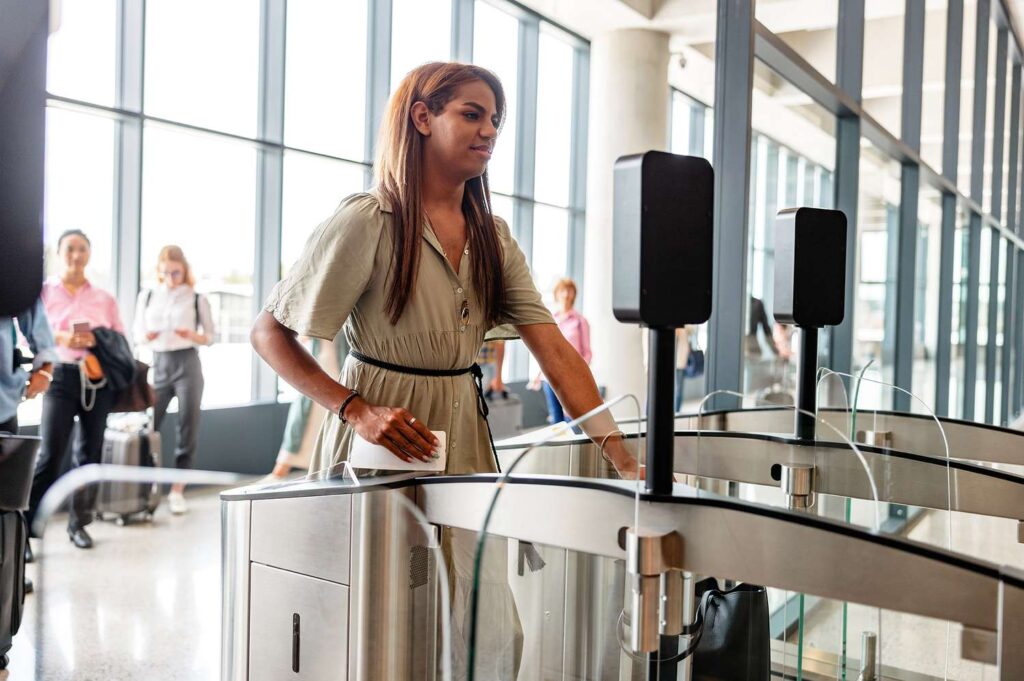TSA is expanding facial-recognition technology in airports throughout the United States. Privacy experts have raised concerns about the TSA’s use of face scans, even though they claim that it is only used to verify travelers identities. You can choose not to have your face scanned without having your trip delayed.
There are a lot of stories that make you uncomfortable about foreign travelers being denied entry to U.S. airports. In April, some German tourists U.S. immigration officials refused to confirm the hotel reservations of passengers at Honolulu airport. They were sent back to Europe. New Zealand’s travel advice for the United States has been revised after at least eight of its citizens In the past few months, a number of people have been denied entry or detained over visa issues. In March, an American scientist traveling to Houston on a research trip was denied entry. was denied entry Border agents are said to have found text messages that criticised former President Donald Trump on his phone. Later, U.S. officials claimed that the denial of his request was due to unauthorized scientific information.
It’s understandable that you might be feeling anxious about travel right now. To regain control, you can do so by learning your rights. You can start by knowing when you are allowed to refuse facial recognition scanning at airports.
The TSA has added facial recognition cameras to its checkpoints at major U.S. airports in the past few years. According to the agencyThe TSA introduced facial-recognition technology to the airport screening process in select airports, as an “improvement” for “traveler convenience” and “security.” The TSA says that these scanners have already been installed in over 80 airports across the country and will be “expanded to more than 400 federalized Airports over the next few years.”
It works like this: As you approach the podium an image of your facial features is taken. The photo on your passport’s chip will then be used to compare it in real-time. If it matches, you’re good to go.
The TSA explained that a traveler can voluntarily consent to using their face during the screening process if they present their passport or physical identification. “The facial-recognition technology TSA uses ensures that the person standing at a checkpoint is the exact person pictured on their identification document (ID).”
The TSA has stated that “photos will not be stored or saved once a positive match is made.” However, it adds “except for limited testing environments to evaluate the effectiveness of this technology.”
But “voluntarily” is the key. You don’t have to scan your facial features if you don’t want to. On the TSA website it says: “Travelers that do not want to participate in facial recognition technology may decline the optional photograph, without recourse, and choose an alternative identity confirmation process which does not use facial identification technology to verify your identity.” This alternative method doesn’t take any longer, and travelers won’t be displaced in the security screening line.
Although there are signs at the airport confirming this “voluntary rule”, they are hidden and are easy to miss. Although it might not seem like much, privacy experts say that opting out is a better option. Instead, they recommend getting verified by a desk representative.
By 2023, Sen. John Kennedy (R-La.) Jeff Merkley, a Democrat from Oregon, and John Kennedy (R-La.) introduced an bipartisan bill to ban the use of facial-recognition screening in airports. stating at the time“The TSA is the precursor to a full blown national surveillance state. There is nothing more damaging to the national values of freedom and privacy. No government should be trusted to have such power.” (Again, the TSA notes on its website: “Biometrics are not used for surveillance–Facial recognition technology is solely used to automate the current manual ID credential checking process and will not be used for surveillance or any law enforcement purpose.”)
You can also find out more about the following: Electronic Privacy Information Center In an analysis from 2023, it was stated that facial recognition technology is “invasive and dangerous.” It added, “There is a reason facial recognition has become ubiquitous in less democratic countries—facial recognition is an ideal tool for oppression by an authoritarian or would-be authoritarian government. The TSA’s facial recognition system normalizes our use of our faces as ID. Its dangerous implications are too large to ignore. The TSA should immediately cease its implementation of facial identification.”
What’s another reason for a break? Accuracy. A 2019 study conducted by the National Institute of Standards and Technology Facial recognition algorithms are prone to misidentification, particularly in certain demographics. As it noted in the study it saw “higher rates of false positives for Asian and African American faces” relative to the images of white faces.
If you don’t want to, you can opt out. You only need to tell the TSA agent that you don’t consent to the scanning and you would prefer to manually verify your ID. After that, you are free to go.


